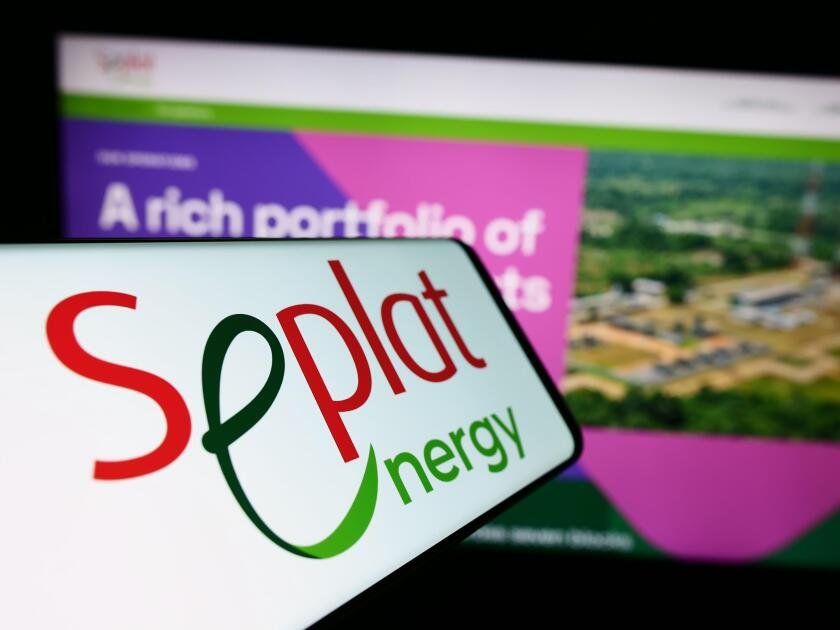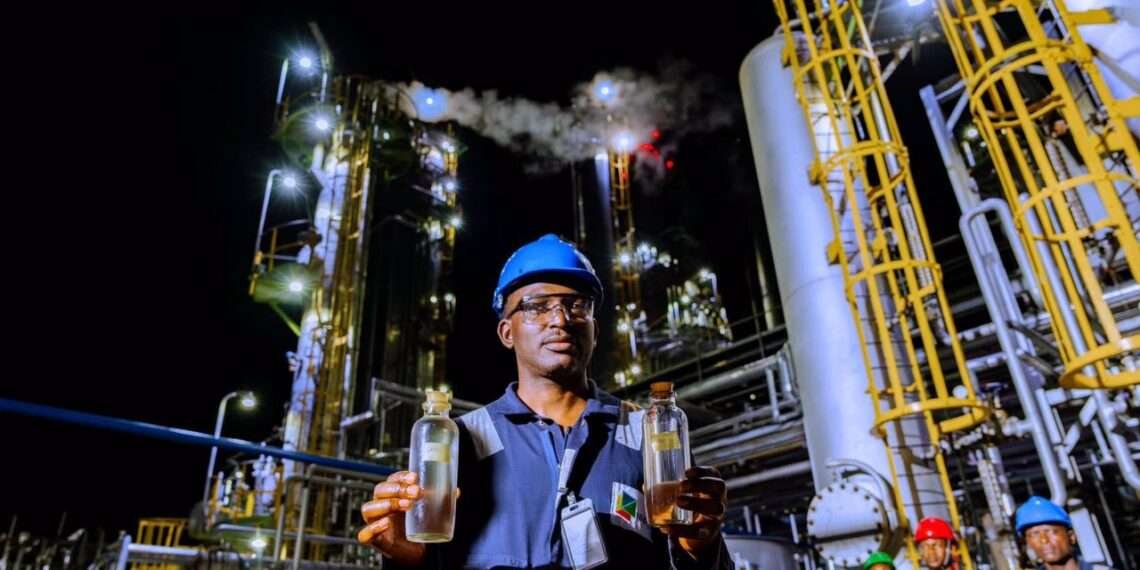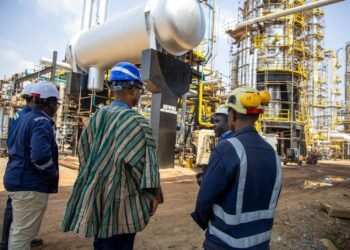Nigeria’s leading indigenous oil and gas producers, Seplat Energy Plc, Oando Plc, and Aradel Holdings Plc, posted strong production gains in the first half of 2025, defying the drag of weaker global oil prices and underpinning Nigeria’s broader upstream recovery.
Combined, the three companies delivered 126,314 barrels of crude oil per day (bpd), with total production on a barrels-of-oil-equivalent (boepd) basis reaching 194,288.
This growth was driven by new asset acquisitions, increased infrastructure reliability, and improved operational efficiency across key assets.
The rebound marks a notable acceleration in Nigeria’s push to ramp up oil production, targeting 3 million bpd from the current average of around 1.78 million.
Speaking at a recent energy conference, Gbenga Komolafe, Chief Executive of the Nigerian Upstream Petroleum Regulatory Commission (NUPRC), credited enhanced security measures and infrastructure upgrades as central to the recent production uptick.
“The government is committed to adding one million barrels per day to our national output.
“This progress is the result of strategic interventions in pipeline security and operational discipline.”
Gbenga Komolafe, Chief Executive of the Nigerian Upstream Petroleum Regulatory Commission (NUPRC)
Seplat Leads on Volume and Growth

Among the three firms, Seplat Energy emerged as the leader in volume growth. The company averaged 134,492 boepd in H1 2025, with crude oil contributing 100,327 bpd.
This represents a staggering 178% increase from the same period in 2024. Seplat’s performance exceeded the midpoint of its full-year guidance of 120,000–140,000 boepd.
“Our first-half production was more than 10% higher than pro-forma output in the same period last year.
“We are delivering on our ambitions while supporting Nigeria’s oil and gas production growth agenda.”
Seplat CEO Roger Brown
Seplat’s surge was fueled by the reactivation of 29 previously idle wells, contributing approximately 25,900 bpd, and improved uptime across offshore assets, which generated 79,660 boepd.
Onshore production also rose 13%, driven by a 24% boost in gas output and a 7% rise in liquids. Capital expenditure during the period reached US$96.5 million, focused on well completions, early-year drilling, and ongoing work at the Sapele Integrated Gas Plant.
While Seplat’s revenue soared by 231% year-on-year to US$1.4 billion, net profit dropped 45% to US$27.4 million due to higher taxes and operational costs. The company’s stock closed at ₦5,450, up 3.9% year-to-date.
Oando Boosts Output

Oando Plc also posted significant gains, recording average crude oil output of 10,479 bpd—a 77% increase from H1 2024.
Total group production reached 37,012 boepd, up 63%, driven primarily by the integration of Nigerian Agip Oil Company (NAOC) assets and increased throughput on the Trans Niger Pipeline (TNP).
“In H1 2025, we advanced our upstream growth strategy with a 63% year-on-year increase in production.
“The integration of NAOC assets, combined with our assumption of operatorship, enabled us to implement holistic security measures and strengthen infrastructure reliability.”
Wale Tinubu, Group CEO of Oando
Oando allocated between US$250 million and US$270 million in capital expenditures toward upstream integration, infrastructure upgrades, and ESG initiatives.
Despite the operational improvements, revenue fell 15% to ₦1.72 trillion, reflecting lower trading volumes and subdued prices.
Nevertheless, net profit rose to ₦63.3 billion, aided by a ₦209 billion tax credit and solid finance income. The company’s share price climbed to ₦53, up 58% over the past year.
Aradel Delivers Steady Gains

Meanwhile, Aradel Holdings delivered steady, diversified growth, averaging 15,508 bpd of crude oil—a 19.7% year-on-year increase—alongside gas output of 41.2 million standard cubic feet per day (mmscfd), equivalent to about 7,276 boepd.
The company also sold 165.3 million litres of refined petroleum products, up 32.7% compared to H1 2024.
“We recorded strong operational performance with minimal crude losses and stable evacuation, thanks to increased utilisation of the TNP and the Alternative Crude Evacuation (ACE) system.”
Adegbite Falade, CEO of Aradel Holdings
Aradel’s capital expenditure reached ₦48.1 billion, slightly lower than the previous year, reflecting disciplined investment focused on optimizing existing assets.
Revenue grew by 37% to ₦368.1 billion, while net profit rose 40% to ₦146.4 billion. However, the company’s stock dipped 1.5% year-to-date to ₦520.
The performance of these three firms is not only a positive signal for Nigeria’s upstream sector but also provides critical support to the federal government’s efforts to stabilize production amid continued volatility in the global oil market.
While Nigeria began the year producing between 1.6 and 1.67 million bpd, well below its 2025 budget benchmark of 2.06 million bpd production rebounded to 1.8 million bpd by July, thanks in large part to enhanced anti-theft measures and improved infrastructure uptime.
With indigenous firms now driving production growth, Nigeria’s path to energy self-reliance and upstream revitalization appears to be gaining momentum.
READ ALSO: Ghana Set to Smash All 2025 Economic Targets – IC Research Hails Strong H1 Performance























